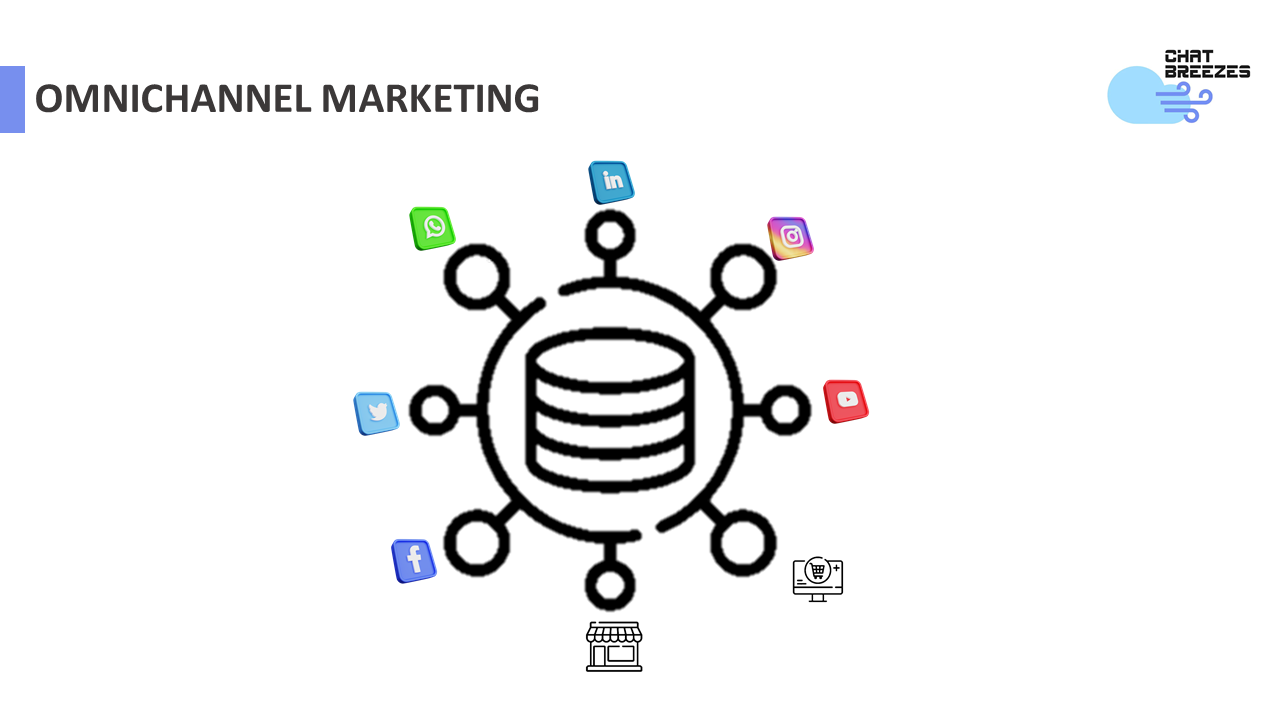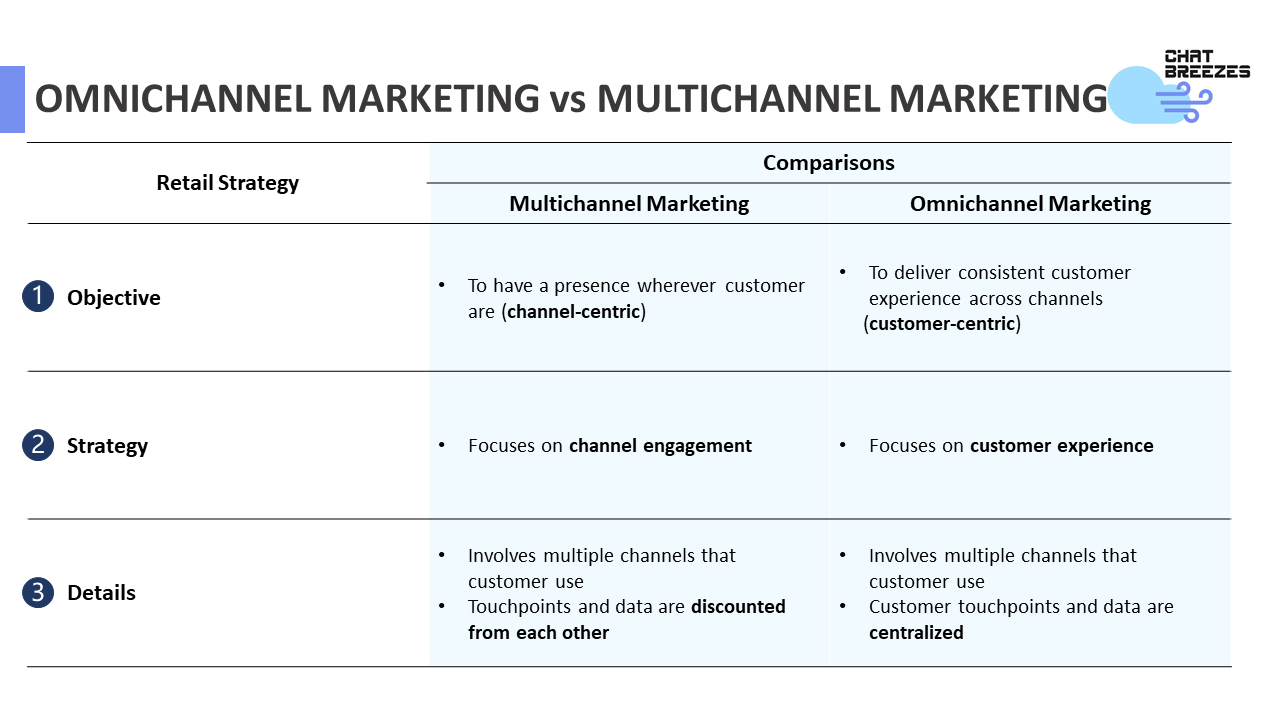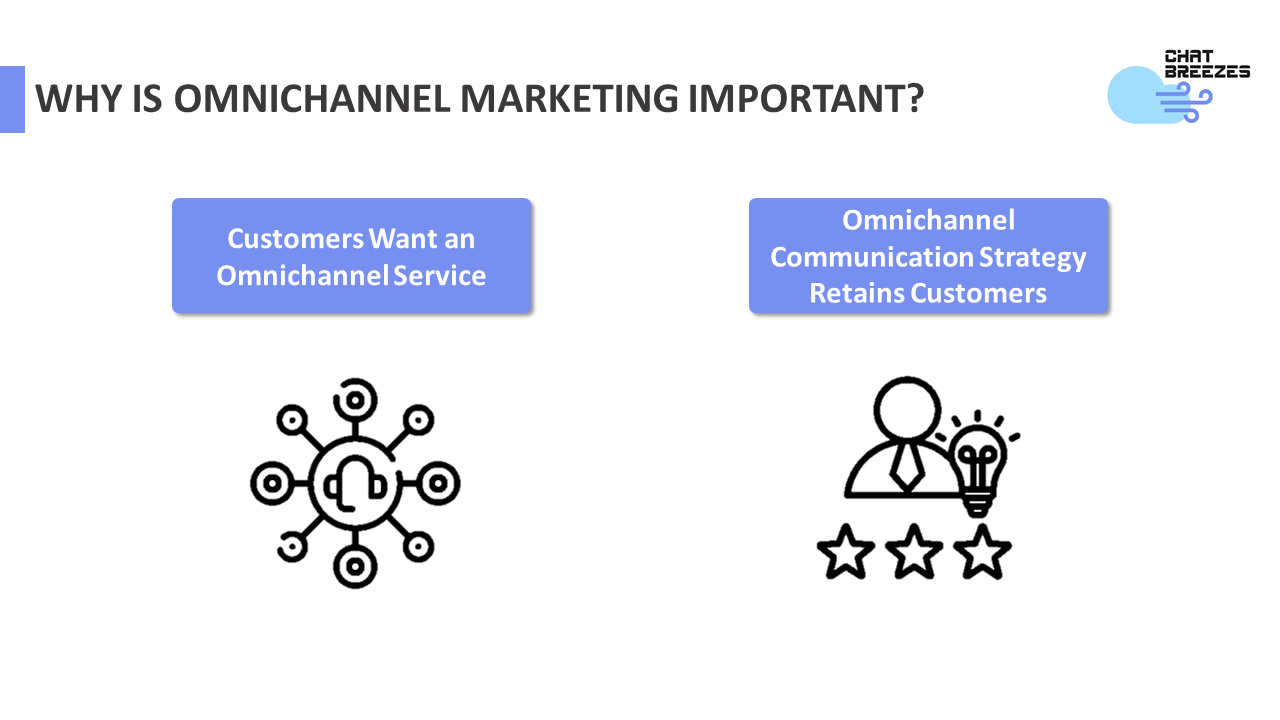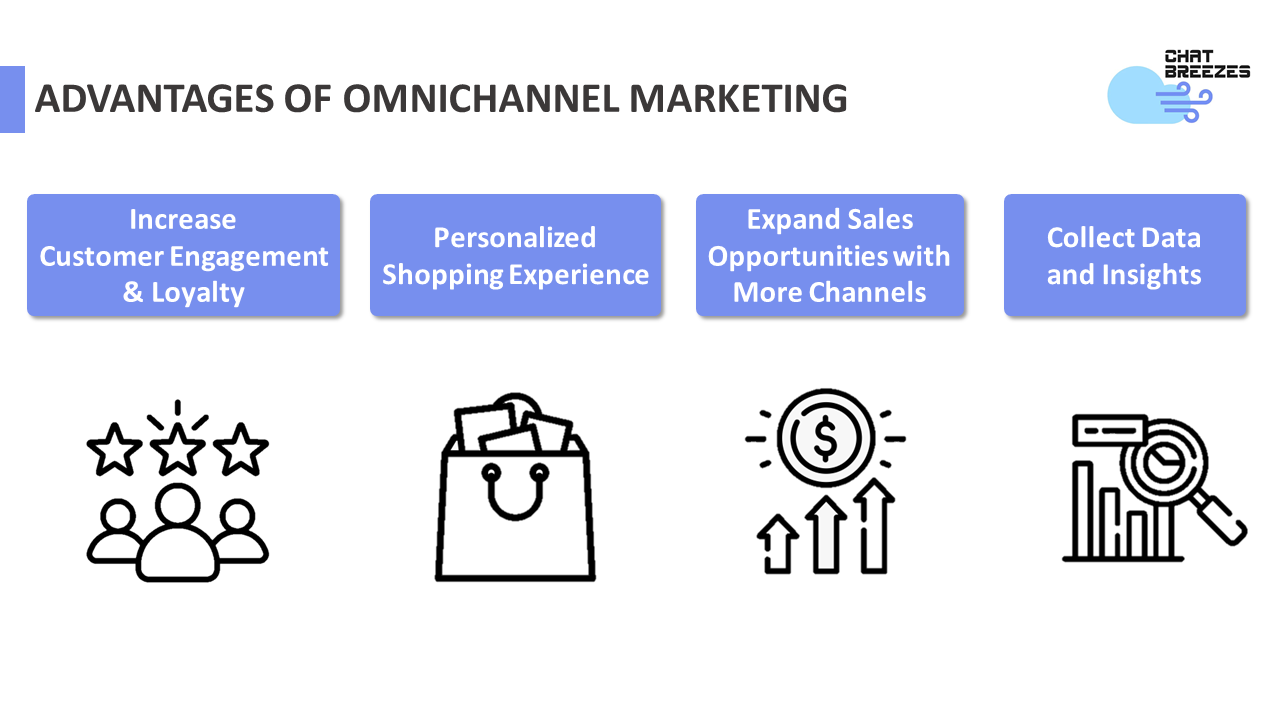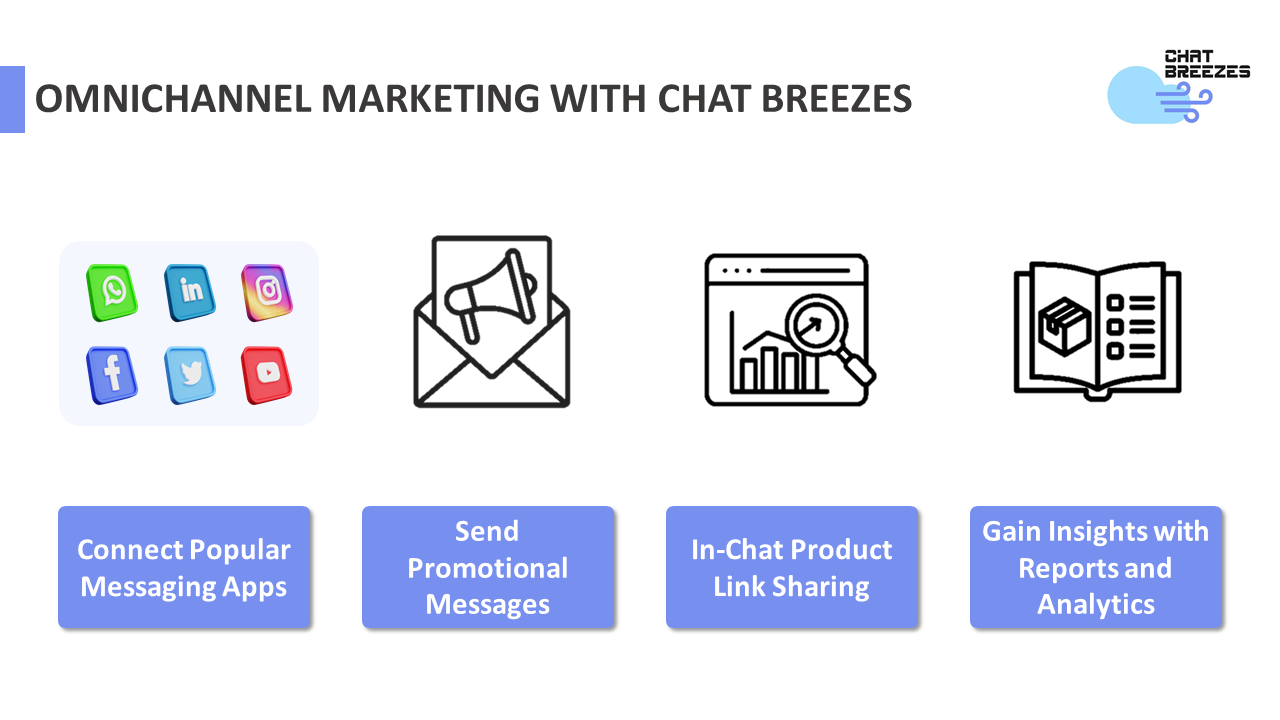Guide to Omnichannel Marketing: Strategies for Success
Customers are no longer confined to a single channel for their shopping needs. Channel hopping has become a common behavior, with consumers using multiple platforms such as social media, email, mobile apps, and physical stores to interact with brands. This trend makes it essential for businesses to adopt an omnichannel marketing strategy to meet evolving customer expectations, deliver a seamless and personalized experience, enhance customer loyalty, and drive sales.
Not sure how to get started? Read on to explore the concept of omnichannel marketing and learn how your business can implement an effective strategy.
What is Omnichannel Marketing?
Omnichannel marketing focuses on creating a unified and consistent customer experience across all channels, whether online or offline. This includes social media platforms like WhatsApp, Facebook, and Instagram, as well as email, mobile apps, physical stores, and more. The aim is to provide a cohesive brand experience regardless of how customers choose to engage with your business.
Components of Omnichannel Marketing
The key elements of omnichannel marketing include:
- A deep understanding of customer behavior and preferences
- Consistent brand messaging and experience across all channels
- Integration of technology to enhance personalization and convenience
- Collaboration across all business departments
- Real-time data analysis to measure and optimize marketing effectiveness
Here are some essential channels to consider for your omnichannel retail strategy:
- Social Selling: Utilize platforms like WhatsApp, Facebook, Instagram, and LinkedIn to sell products and services directly.
- E-commerce Stores: Allow customers to make purchases through your website from anywhere, at any time.
- Digital Marketplaces: Make your products available on platforms such as Amazon, eBay, Etsy, and Alibaba for broader reach.
- Mobile Applications: Develop apps to provide personalized experiences, including mobile ordering, payments, and loyalty programs.
Omnichannel Marketing vs. Multi-channel Marketing
While often used interchangeably, there are distinct differences between omnichannel and multi-channel marketing:
Why is Omnichannel Marketing Important for Businesses?
Adopting an omnichannel strategy is crucial to meet changing customer expectations. Customers now interact with brands through multiple channels and expect a consistent experience. Businesses that implement omnichannel marketing can stand out by offering personalized experiences, enhancing customer loyalty, and driving more sales.
Benefits of Omnichannel Marketing for Businesses
Increased Customer Engagement:
Omnichannel marketing enables businesses to engage with customers across multiple platforms, providing a more personalized and seamless experience that encourages purchases. For example, a customer who messages your business on Instagram is more likely to engage with your Facebook ads if they see consistent branding and attractive visuals.
Improved Customer Loyalty:
Providing a consistent and seamless experience builds customer loyalty. Imagine ordering coffee via WhatsApp based on suggestions from your Instagram engagements, paying instantly, and picking it up on your way to work. This integrated experience fosters repeat business.
Increased Sales:
80% of customers are more likely to purchase from a brand that offers a personalized and convenient experience. Using tools like automation, CRM segmentation, and in-chat payment links, businesses can provide a frictionless shopping experience that drives sales.
Better Customer Insights:
Omnichannel marketing allows businesses to gather and consolidate data from multiple channels, providing comprehensive insights into customer behavior. These insights help in making informed decisions and creating more effective marketing strategies.
How to Implement an Effective Omnichannel Marketing Strategy
Step 1: Understand Your Customers:
Gain insights into customer behavior and preferences through surveys, data analysis, and tracking browsing behavior on your website. Communicate with vistors to assist visitors and gather valuable data.
Step 2: Define Your Brand Story:
A clear brand story is essential for consistency across all channels. Reflect your business values, personality, and unique selling proposition. Use social media to showcase your brand story and engage with your audience.
Step 3: Create a Seamless Customer Journey:
Map out the customer's journey across all channels to identify gaps and opportunities for improvement.
Step 4: Leverage Technology and Smart Tools:
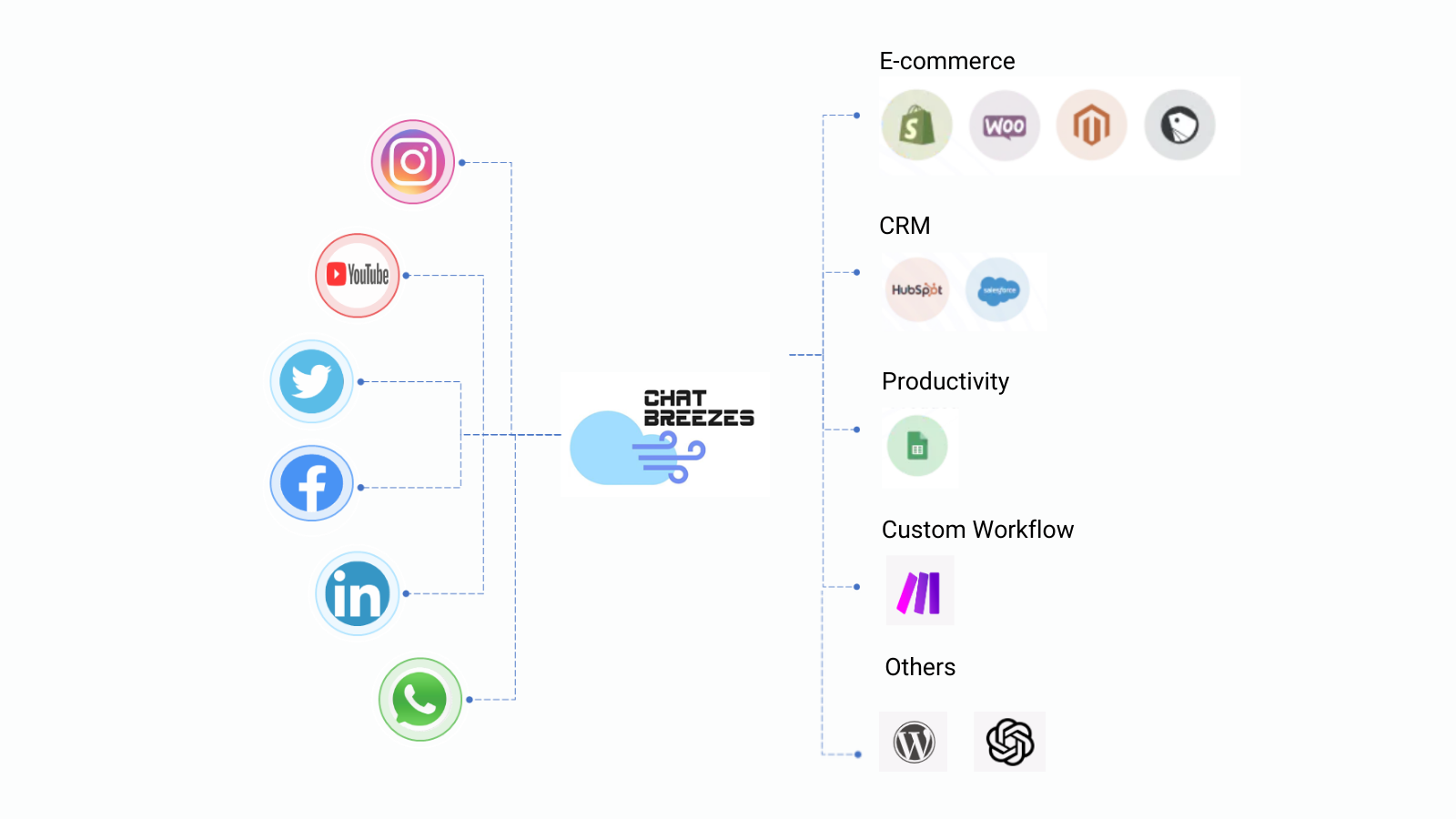
Use an omnichannel marketing platform, CRM systems, automation tools, and personalization software to enhance the customer experience.
Step 5: Measure and Optimize Your Campaigns:
Continuously measure the effectiveness of your omnichannel marketing strategy and optimize it based on customer feedback and performance data.
Challenges of Omnichannel Marketing for Businesses
Implementing an omnichannel strategy can be complex due to:
- Integrating multiple channels and technologies
- Data silos making comprehensive customer views challenging
- Resource constraints (technology, staff, budget)
- Resistance to change within the organization
However, these challenges can be managed by conducting thorough assessments, using cost-effective omnichannel solutions, and providing training for your team.
Successful Omnichannel Marketing Campaigns
Sephora
Sephora has created a seamless experience by integrating VR product demonstrations, online consultations, and a mobile app for personalized recommendations.
Starbucks
Starbucks uses personalized recommendations and loyalty programs to foster customer retention. They integrate digital and physical experiences, enhancing customer loyalty.
Nike
Nike offers a premium shopping experience through NikePlus, which includes personalized onboarding, fitness tracking, and exclusive in-store experiences for members.
Use Chat Breezes to Create the Best Omnichannel Marketing Strategy
Creating an effective omnichannel marketing strategy requires understanding customer behavior, integrating multiple channels, and collaborating across departments.
Chat Breezes offers powerful tools to help businesses achieve these goals:
- Centralized CRM system for comprehensive customer data
- Automated, personalized broadcast messages on WhatsApp and Facebook
- In-chat payment links for seamless checkout
- Detailed analytics to track and optimize campaign effectiveness
Start using Chat Breezes today to create a seamless and consistent customer experience across all channels.
Further Reading
If you found this article informative and helpful, here are some other posts that might be useful to you:
